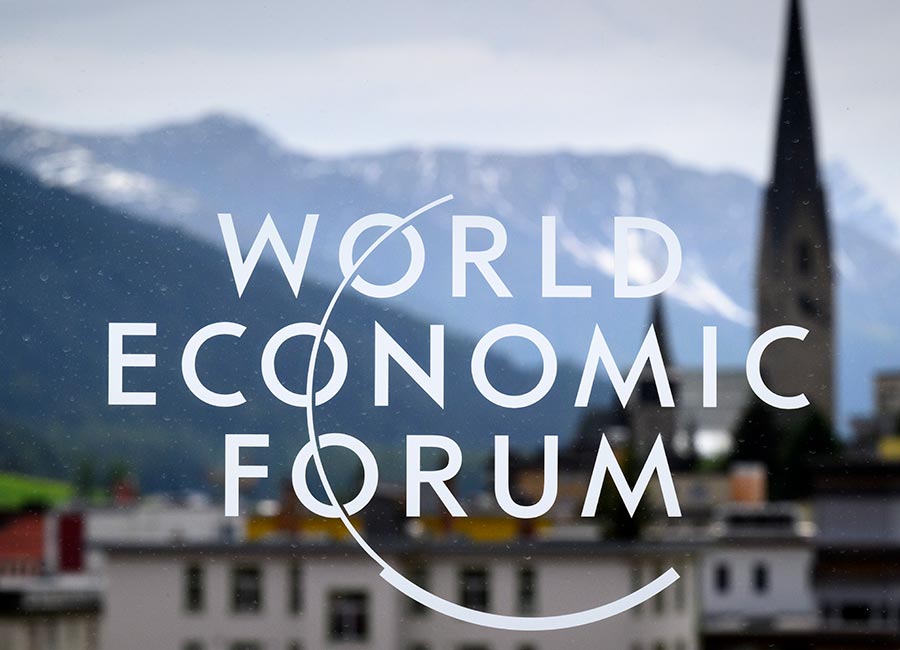Ukrainian President Volodymyr Zelenskyy called for "maximum" sanctions against Russia during a virtual Davos talk on the first day of the World Economic Forum gathering of corporate executives, government officials and other VIPs in Switzerland.
He said sanctions need to go further to stop Russia's aggression, including an oil embargo, blocking all of its banks and cutting off trade with Russia completely.
"This is what sanctions should be: They should be maximum, so that Russia and every other potential aggressor that wants to wage a brutal war against its neighbour would clearly know the immediate consequences of their actions," Zelenskyy said.
He said that there should be a precedent that will work for decades to come. He also pushed for the complete withdrawal of foreign companies from Russia to prevent supporting its war and said Ukraine needs funding — at least $5bn per month.
The Group of Seven leading economies agreed Friday to provide $19.8bn in economic aid to Ukraine to help keep tight finances from hindering its ability to defend itself.
Zelenskyy says his people's courage has stirred unseen unity of the democratic world.
His speech was a key focus at Davos, the village in the Swiss Alps that has been transformed into a glitzy venue for the four-day confab ostensibly dedicated to making the world a better place. The event is resuming in person after a two-year hiatus because of the COVID-19 pandemic, which also delayed this year's meeting from its usual winter slot because of uncertainty over the omicron variant.

For the attendees, there's much to tackle amid soaring food and fuel prices, Russia's war in Ukraine, climate change, inequality and persistent health crises. But it's hard to predict if the high-minded discussions will yield substantial announcements that make headway on the world's most pressing challenges.
"This war is really a turning point of history and it will reshape our political and our economic landscape in the coming years," the event's founder, Klaus Schwab, said.
The elite attendees have filled the conference venue, to both schmooze and listen to panel discussions on topics like the Russia-Ukraine war, climate change and the global economic outlook. Attendees also are visiting nearby pavilions on Davos' main drag set up by companies like Intel, Accenture and Facebook owner Meta.
There's also a sizable Ukrainian government delegation attending in person, making their case for more Western support in the country's fight against Russia.
Russian officials have not been invited to Davos this year, with what was dubbed the "Russia House" having been transformed by critics — including Ukrainian tycoon Victor Pinchuk and the country's Foreign Ministry — into what they call the "Russia War Crimes House."
The venue features photos of crimes and cruelties that Russian forces are accused of perpetuating. Some victims will speak out — including Anatoliy Fedoruk, the mayor of Bucha, a town near Kyiv where killings of civilians drew outrage.
While Ukraine will capture attention on the meeting's first day, climate and environmental issues will be a constant theme as the forum looks to future challenges as much as the current ones.
One-third of the roughly 270 panel discussions through Thursday's finale will focus on climate change or its effects, with extreme weather, efforts to reach "net zero" emissions and finding new, cleaner sources of energy on the agenda.
+Additional reporting AP











